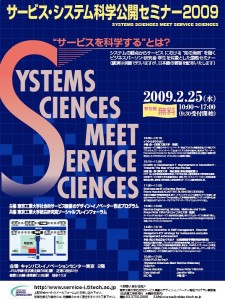Two Major Research Projects (MRPs) — they might be called master’s theses elsewhere — by Zaid Khan and David Akermanis reflect the Systemic Design agenda within the OCADU program on Strategic Foresight and Innovation (SFI). To graduate, all SFI students complete an MRP. With many subjects and techniques covered during SFI studies, only a few exercise Systemic Design at their core.
The September session of Systems Thinking Ontario came shortly after the defence of the two MRPs in August. As we had suspended convening in person during 2020, our monthly meeting was conducted online. This afforded recordings to be shared more widely.
The video file is also available on the Internet Archive, for those who prefer a downloadable option.
| Video | H.264 MP4 |
| September 14 (1h27m) |
[20200914_ST-ON_Khan_Akermanis.mp4] (FHD 785kbps 293MB) [on archive.org] |
The digital audio originally in M4A format has also been transcoded to MP3.
| Audio | |
| September 14 (1h27m) |
[20200914_ST-ON_Khan_Akermanis.m4a] (43MB) 20200914_ST-ON_Khan_Akermanis.mp3] (38MB) |
Here is the original description for the Systems Thinking Ontario September 14, 2020, session.
— begin paste —
Strategic Communications + The Brand Stack
A Major Research Project at OCADU is roughly equivalent to a Master’s Degree thesis (with some administrative differences). To start off the new academic year, we will have fresh presentations following the successful defences in the Strategic Foresight & Innovation Program at OCADU over the last month, by Zaid Khan and David Akermanis.
(1) A Systems-Oriented Approach to Strategic Communications — Zaid Khan
Systemic Design has emerged as both a theory and a practice that integrates design thinking and systems thinking to help designers cope with complex social systems.… Read more (in a new tab)
Two Major Research Projects (MRPs) — they might be called master’s theses elsewhere — by Zaid Khan and David Akermanis reflect the Systemic Design agenda within the OCADU program on Strategic Foresight and Innovation (SFI). To graduate, all SFI students complete an MRP. With many subjects and techniques covered during SFI studies, only a few exercise Systemic Design at their core.
The September session of Systems Thinking Ontario came shortly after the defence of the two MRPs in August. As we had suspended convening in person during 2020, our monthly meeting was conducted online. This afforded recordings to be shared more widely.
The video file is also available on the Internet Archive, for those who prefer a downloadable option.
| Video | H.264 MP4 |
| September 14 (1h27m) |
[20200914_ST-ON_Khan_Akermanis.mp4] (FHD 785kbps 293MB) [on archive.org] |
The digital audio originally in M4A format has also been transcoded to MP3.
| Audio | |
| September 14 (1h27m) |
[20200914_ST-ON_Khan_Akermanis.m4a] (43MB) 20200914_ST-ON_Khan_Akermanis.mp3] (38MB) |
Here is the original description for the Systems Thinking Ontario September 14, 2020, session.
— begin paste —
Strategic Communications + The Brand Stack
A Major Research Project at OCADU is roughly equivalent to a Master’s Degree thesis (with some administrative differences). To start off the new academic year, we will have fresh presentations following the successful defences in the Strategic Foresight & Innovation Program at OCADU over the last month, by Zaid Khan and David Akermanis.
(1) A Systems-Oriented Approach to Strategic Communications — Zaid Khan
Systemic Design has emerged as both a theory and a practice that integrates design thinking and systems thinking to help designers cope with complex social systems.… Read more (in a new tab)



